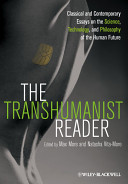The Umwelt Bubble
The biologist Jakob von Uexküll’s term Umwelt refers to a concept about the subjective world of an organism. The world can be imagined as a soap bubble, which surrounds each individual and contains signifying markers relevant only to the world of that specific creature. This soap bubble, or Umwelt, is actively created by the individual organism in a process of forming a perception of reality, which is guided by the organism’s design, its physiology, and its needs.
According to Uexküll, the physiology and design of an organism impacts its Umwelt. For example, it has been proven that fighting fish do not recognize their own reflection if it is shown 18 times per second, but they do recognize their reflection if it is shown at a minimum speed of 30 times per second. This experiment shows that in the world of fighting fish, “who feed on fast-moving prey, all motor processes – as in the case of slow-motion photography – appear at reduced speed” (Uexküll 1934). The Umwelt of a fighting fish is based on its need to be able to capture food for its survival. Uexküll’s point of view was that biology should study organisms not as objects, but as active subjects, and focus on their ability to integrate into complex environments.
Notes:
By Laura Beloff's "The Hybronaut Affair: A Ménage of Art, Technology, and Science"
Folksonomies: perception transhumanism
Taxonomies:
/art and entertainment/visual art and design/design (0.398200)
/science (0.375183)
/pets/aquariums (0.313369)
Keywords:
soap bubble (0.986120 (negative:-0.424408)), biologist Jakob von (0.947544 (neutral:0.000000)), Bubble By Laura (0.774116 (neutral:0.000000)), individual organism (0.770118 (neutral:0.000000)), Hybronaut Affair (0.705294 (neutral:0.000000)), subjective world (0.696402 (neutral:0.000000)), term Umwelt (0.673855 (neutral:0.000000)), specific creature (0.670564 (neutral:0.000000)), slow-motion photography (0.662917 (negative:-0.397163)), fast-moving prey (0.660101 (neutral:0.000000)), fighting fish (0.628167 (neutral:0.000000)), minimum speed (0.625067 (neutral:0.000000)), active subjects (0.619912 (neutral:0.000000)), complex environments (0.618277 (positive:0.398505)), reduced speed (0.618198 (negative:-0.397163)), Uexküll (0.538565 (positive:0.433105)), physiology (0.448301 (positive:0.334463)), reflection (0.439028 (neutral:0.000000)), design (0.421305 (positive:0.334463)), Beloff (0.421177 (neutral:0.000000)), times (0.402253 (neutral:0.000000)), markers (0.370771 (neutral:0.000000)), Ménage (0.368125 (positive:0.255809)), Art (0.368068 (positive:0.255809)), perception (0.368061 (neutral:0.000000)), Technology (0.368011 (neutral:0.000000)), Science (0.367925 (neutral:0.000000)), concept (0.363655 (neutral:0.000000)), organisms (0.361610 (neutral:0.000000)), process (0.361171 (neutral:0.000000))
Entities:
Jakob von Uexküll:Person (0.802581 (positive:0.433105)), Umwelt:Company (0.757010 (positive:0.334463)), Laura Beloff:Person (0.388426 (neutral:0.000000))
Concepts:
Biology (0.984910): dbpedia | freebase | opencyc
Organism (0.775282): dbpedia | freebase
Universe (0.553188): dbpedia | freebase
Species (0.489295): dbpedia | freebase | opencyc
World (0.472393): dbpedia | ciaFactbook | freebase
Soap (0.452200): dbpedia | freebase
According to Jim (0.444855): dbpedia | freebase | yago
Gene (0.440889): dbpedia | freebase





